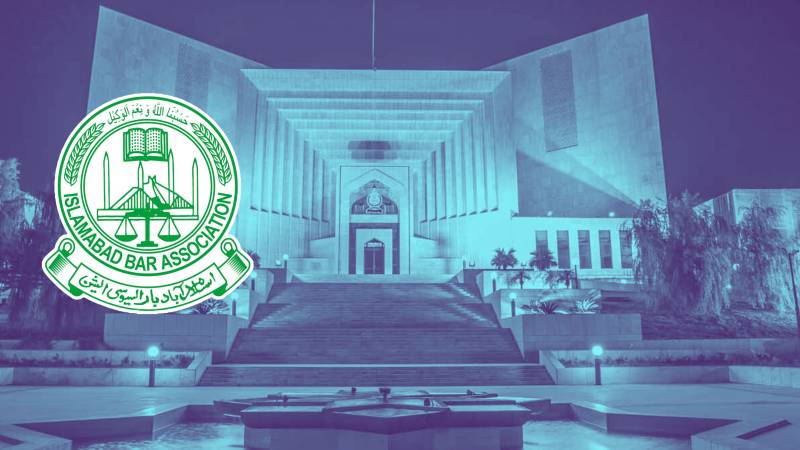
The Islamabad High Court Bar Association (IHCBA) Thursday approached the Supreme Court, urging it to probe the letter written by six judges of the Islamabad High Court which alleged interference in judicial proceedings, intimidation and surveillance of judges by security services.
The IHCBA has further requested the top court to include its petition in the suo moto on the matter, which is currently underway.
The petition was moved by the IHCBA through its president, Riasat Ali Azad, and the federal government was listed as a respondent.
The IHCBA has urged the top court to order a probe to ascertain facts surrounding the allegations highlighted in the judges' letter and, upon completion of such a probe, pass appropriate orders to affix liability on those who undermined the independence of the judiciary.
It was further requested that the Supreme Court make recommendations on the matter if it falls within the jurisdiction of the Supreme Judicial Council (SJC).
"IHCBA is the primary stakeholder in the matter of the letter dated March 25, 2024, written by six Judges of the Islamabad High Court (IHC) to the Chairman and Members of the Supreme Judicial Council, a copy of which letter was distributed to all other Judges, and the Registrar, of this Court (the "IHC Judges Letter")," the petition stated.
The petition added that the IHCBA is committed to exemplary interface between the Bar and the bench with the underlying purpose of sustaining efficient and effective administration of justice.
"Intimidation or harassment of a judge of a High Court, or a judge of the court, subordinate to it, or those discharging quasi-judicial functions responsibilities at a tribunal established by law is not fair game," the petition read, adding, "It is an affront to constitutionalism and a brazen attack on the independence of judiciary."
It is pertinent to note that after the letter was written by the judges, the matter was referred to the federal government by Chief Justice Qazi Faez Isa to form a formal commission of inquiry under a retired judge. The federal cabinet had approved the commission, naming former chief justice of Pakistan Tassaduq Hussain Jilani as its head. However, after reviewing the terms of reference set by the government and the contents of the letter, Justice (retired) Jilani refused to head the commission. Subsequently, the Supreme Court took suo moto notice of the matter and decided to pursue the matter.
A seven-member bench (all available judges) of the top court had heard the suo moto. Justice Yahya Afridi, who was part of the bench, later recused himself and issued a note explaining that while the suo moto has been taken in good faith, it may harm the independence of high courts and their chief justices.
"The proposed action of suo motu would negate the lessons we have learnt from our recent judicial precedents and, thus, we must not be moved into action by public sentiments no matter how pressing the issue may appear."
In the aftermath of the suo moto notice, judges in the Supreme Court, the Islamabad High Court and the Lahore High Court received threatening letters containing a white powder stated to be anthrax poison.

